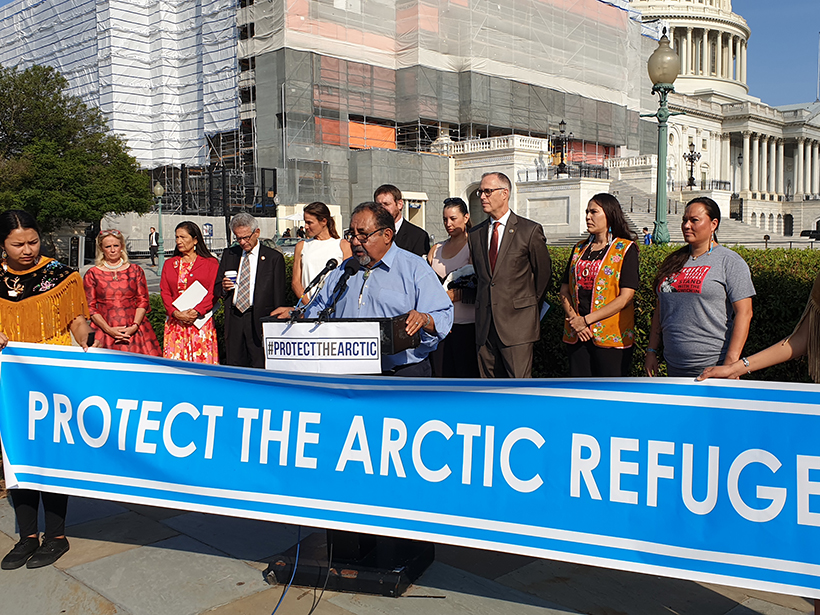Members of Congress and members of the Gwich’in stand in solidarity against oil drilling in the Arctic Wildlife Refuge.
Oil Drilling in the Arctic Endangers Us All
Jan 15, 2021
The Trump Administration stated this week that they will be selling leases to land in the Arctic Wildlife Refuge for oil drilling. This would be the first time in history that the land will be open to extraction since it was set aside as a conservation unit by President Eisenhower in 1960.
The Refuge is the only conservation range that includes an entire Arctic ecosystem. This ecological area sustains an array of flora and fauna and is home to many unique species.
Drilling in this pristine area would be detrimental not only to those who live there but would also devastate living beings across the nation and the globe.
Oil Drilling Threatens Animals Across the World
The Refuge is home to the Porcupine caribou herd; the 197,000 individuals in the group make the herd one of the largest in the world.
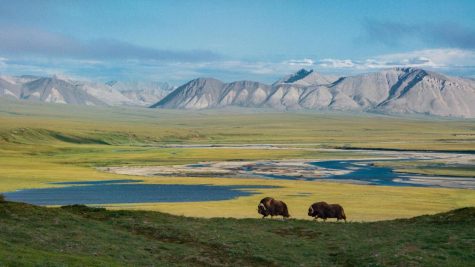
The expansive Arctic Wildlife Refuge is home to an array of plant and animal life. Drilling in this pristine area would be detrimental not only to those who live there, but would also devastate living beings across the nation and the globe. (National Geographic)[/caption]
Millions of birds visit the Refuge as they migrate each year to feast on the abundant plant and insect life. These birds come from all fifty states and visit six continents during their migration. Around seventy of these bird species will nest and continue their life cycle in this protected habitat.
The landscape sustains species that were priorly endangered including the muskox, and also supports top predators. All three North American bear species rely on the Refuge for sustenance and shelter; Grizzly bears, listed as threatened on the endangered species list, roam through the area. The Refuge has become the most common land denning sight for the endangered polar bear as well, an animal listed as vulnerable as their population decreases due to melting sea ice.
Currently, the refuge is a thriving arctic ecosystem: a rarity at this time in history. Drilling in these lands threatens the prosperous region and all the living beings who rely on it. The animals who live and pass through the area impact every ecosystem in America. Therefore, the protection of these wildlands is imperative for the health of the whole nation.
For example, many bird species would no longer be able to pursue their migratory patterns if the Refuge becomes unhealthy which would directly impact the ecosystems in the lower states.
A Threat to Indigenous Communities
The Gwich’in people, also known as Caribou People, live in Alaska and Canada. Their communities are placed on and near the Porcupine herds migratory trail that they take to and from the Arctic Wildlife Refuge each year.
The Gwich’in witness the Porcupine herd migrate to their calving grounds in the Refuge and they call the plain where the caribou calf “the sacred place where life begins.” The Porcupine herd is vital to the Gwich’in peoples’ livelihood: estimated to have inhabited the land for 20,000 years, the Gwich’in rely on the herd for their nourishment and traditions.
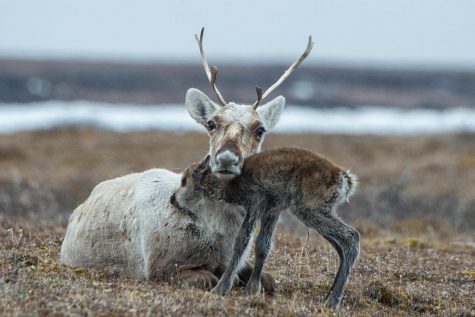
A mother and calf who are a part of the Porcupine Caribou herd stay close to one another. The Porcupine herd migrates to their calving grounds in the Arctic Wildlife Refuge each year.
Unfortunately, the Caribou’s calving grounds have been included in the land the Trump administration plans to lease to oil companies for extraction. If drilling was to occur on the plain, it would hurt not only the caribou population by destroying their birthing place, but the Gwich’in as well. Drilling in this precious land violates the Gwich’in people’s right to life, liberty and the pursuit of happiness by threatening their food source and way of life.
Violates the Basic Human Rights of All
In November, the U.S. chose Joe Biden as the next president. The president-elect ran on a platform that included environmental justice and he pledged to protect the Refuge. By accelerating the timeline to lease the land on Jan. 6, a mere 24 days before Biden takes office, the government is refusing to represent the wants of the majority of the population.
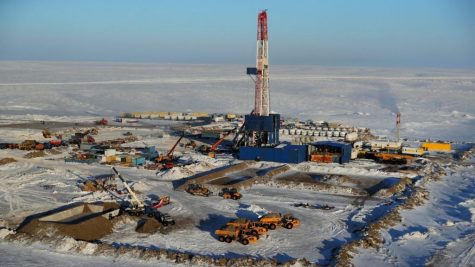
While drilling has the potential to provide short-term benefits to those in the business, the lasting effects of extraction are not worth it. (Grist)
The plain of the Refuge has attracted extractors because it is believed to contain one of the last petroleum reserves in the U.S., but this assessment is not certain. It is estimated that 24 billion barrels of oil and 104 trillion cubic feet of natural gascould be extracted from the Refuge. If these estimates are true, 15.8 billion metric tons of carbon dioxide will be released into the atmosphere if drilling occurs.
Climate change affects the lives of us all. Continuing to extract and use fossil fuels will exacerbate the already gargantuan problem.
By continuing down this destructive path, Gen Z and the futures of upcoming generations are put at a heightened risk of inheriting an unlivable planet. This violates everyone’s right to life, liberty, and happiness.
The Bottom Line
Oil drilling should not continue, especially not in habitats as vital and pristine as the Arctic Wildlife Refuge.
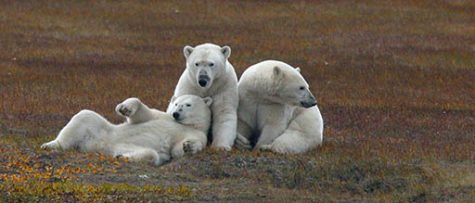
Oil extraction is often supported because it is said to bring jobs and boost the economy. Oil drill workers are paid well but the jobs are insecure since they disappear when oil prices drop. The market for oil is set to go down as the push for the end to extraction and serious climate action becomes more popular. This means that oil will not produce as much profit as it has in the past.
While drilling has the potential to provide short term benefits to those in the business, the lasting effects of extraction are not worth it. Luckily, the extreme conditions of the Arctic may deter oil companies from buying the land since the profit from extraction may not be worth facing the tough conditions.

